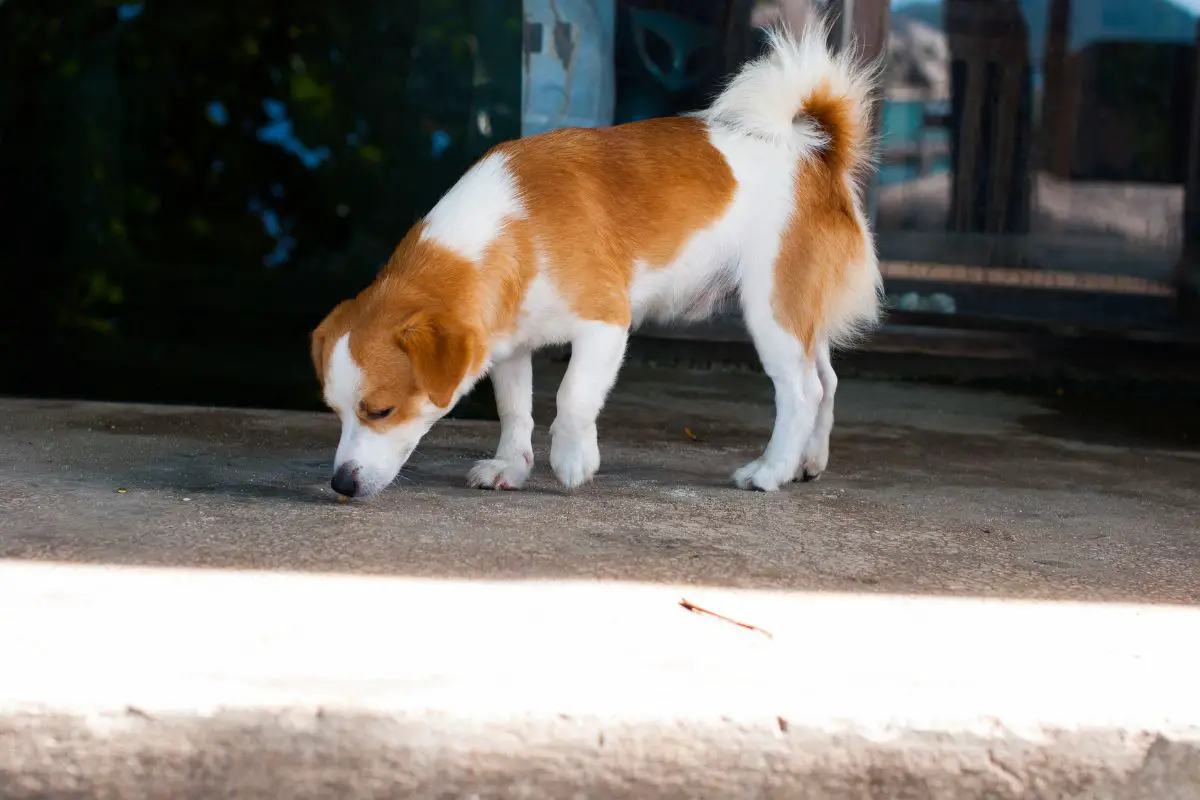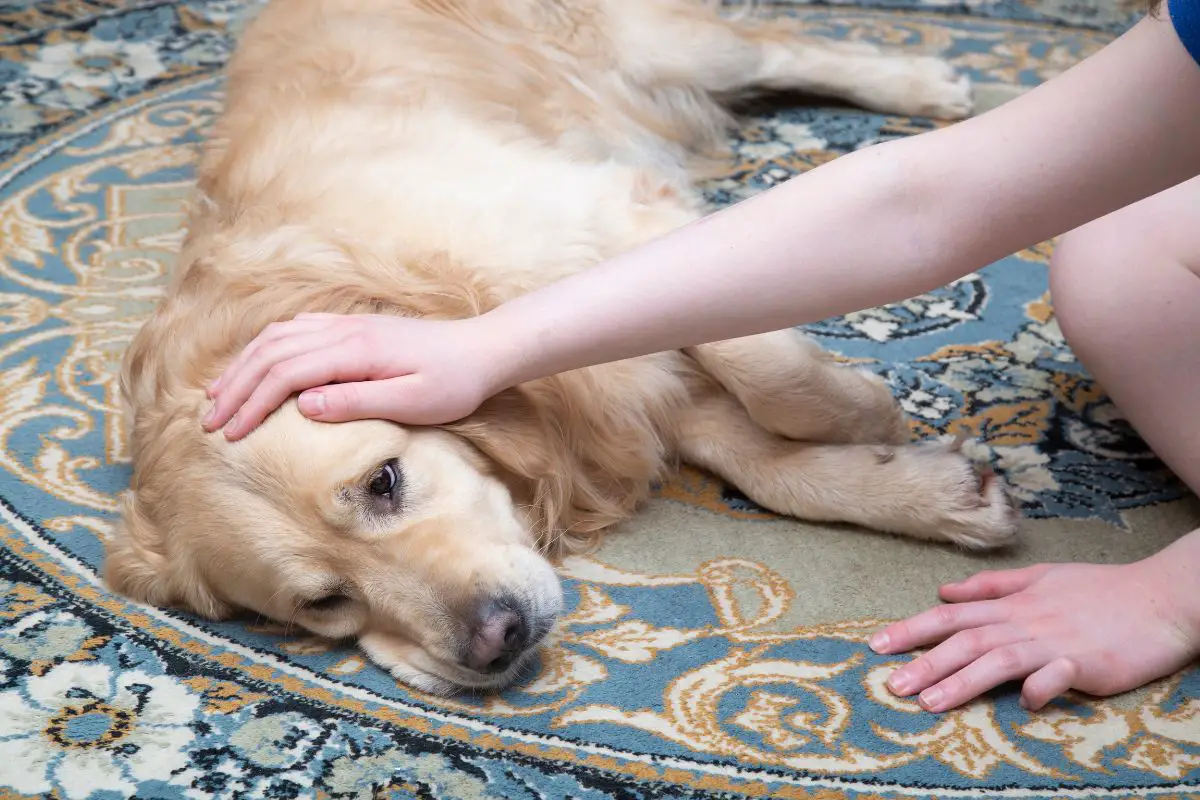Many people find it very challenging to start their day without a tasty cup of coffee. But do you know caffeine has similar energizing effects on dogs? However, the sad thing is that the energizing effect of coffee on dogs is not a good thing. Caffeine is highly toxic to dogs. That is why your dog can get very sick when it eats coffee beans, ground coffee, or other foods containing high caffeine content. So are coffee grounds bad for dogs? Yes, they are. Read on to find out why.

How Dangerous Is Coffee to Dogs?
Coffee contains the highest amount of natural caffeine. It is a very strong stimulant. While you take coffee in the morning to help kick start your day, your canine friend may not enjoy similar benefits. Probably, your dog always wakes up while wagging its tail and does not need any help from caffeine to wake up. Dogs are more sensitive to caffeine than humans. Thus, caffeine affects them more.
You also need to remember that caffeine is present in other common foods. Besides being found in coffee, you will also find it in tea, candy bars, chocolate, diet pills, sports or energy drinks, soda, and cola among others. Caffeine is especially poisonous to elderly dogs or those with underlying health problems. Also, smaller dogs struggle with caffeine more than larger dogs.
What to Do If Your Dog Eats Coffee Grounds
If your dog swallowed some coffee grounds without your knowledge, you will need to take certain measures to protect it from serious side effects. Here is what you need to do after you realize your dog just ate coffee grounds:
Step 1- Keep the grounds away and secure your dog
First, keep the coffee grounds out of reach of your dog. Ensure you store them in an area where it cannot access them. Next, secure your dog in another area, such as in the laundry room or bedroom.
Step 2- Check your dog for signs of distress
Next, you will need to examine your pup for any signs of distress. Check whether there are any signs of sickness such as diarrhea, vomiting, trembling, or collapsing. If you notice any of these problems, seek veterinary assistance right away.
Step 3- Check for any evidence
You will need to find out whether your dog has eaten decaf grounds or fresh caffeinated grounds. Probably they have eaten something else that is making them sick. You can check around your home for evidence of what they have eaten. You might see coffee grounds on the floor or whatever they may have eaten. Also, check the area around the trash can for evidence of scattered items that your dog may have consumed.
Step 4- Call your veterinarian
If you suspect your dog has eaten coffee grounds, call your veterinarian right away. You can let them know your dog’s weight or size. Follow the advice your veterinarian will give you. If your dog looks sick, or it consumed a lot of coffee grounds, it will require a medical examination. If your vet recommends seeing your dog, have it taken to their clinic soonest possible. Sometimes, symptoms may show later. Thus, have your dog examined within the shortest time possible.
Step 5- Prevent future occurrences
You should take appropriate measures to prevent accidents from occurring in the future. For instance, dispose of used or expired coffee grounds in secure garbage bins. Also, store unused coffee grounds out of reach of your dog.
Symptoms of a Dog That Has Eaten Coffee Grounds

The size or weight of your dog and the amount of coffee consumed determines the level of caffeine toxicity. Large dogs are less likely to get harmed by consuming little coffee. Also, different dogs react differently to caffeine. Thus, consult your veterinarian for professional advice.
Whether your dog has chewed on a K-cup, coffee pod, coffee beans, or licked ground coffee, consult your vet immediately. Symptoms of caffeine consumption usually appear within 1 to 2 hours after ingestion. You are likely to see symptoms such as:
- Vomiting
- Seizures
- Collapse
- Restlessness and hyperactivity
- Increased body temperature
- Arrhythmia (abnormal heart rhythm) and/or tachycardia (elevated heart rate)
- Increased blood pressure
Actions Your Veterinarian Will Take
In case your veterinarian has any concerns about your dog, they will request you to visit their clinic with the dog for examination. The vet will examine your pup and offer treatment options if they notice any symptoms of caffeine toxicity.
The treatment options given are usually meant to prevent further caffeine absorption. Most vets recommend giving medication that makes your dog vomit to empty its stomach. Activated charcoal is often given to a dog that has ingested caffeine to help absorb any remnant caffeine. If you take your dog to the vet promptly, it is more likely to recover quickly from this treatment regime.
Final Words
Are coffee grounds bad for dogs? Caffeine in coffee grounds is toxic to dogs, especially when consumed in large amounts. If your dog consumes large amounts of caffeine and is left untreated, it may succumb to caffeine toxicity. You should seek immediate medical assistance from your vet regardless of the amount of caffeine your dog has consumed. Also, prevent future accidents by disposing of used coffee grounds properly and keeping unused ground coffee out of their reach.